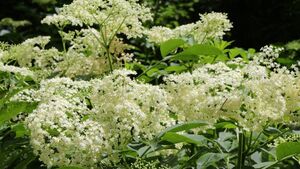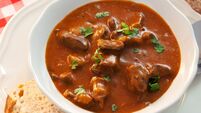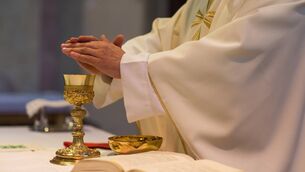Living Greener: How to use Elderflower in the kitchen

Elderflower is versatile and can be made into an alcoholic drink, a cordial to flavour dishes for the rest of the year
FOR most of the year, elder trees are little more than weeds in tree form.
They grow as fast as willows but have none of the advantages – they cannot be woven into baskets or bent into fences, they create a noxious stink in spring, and even their smoke is mildly toxic. For a few short weeks in June, however, they burst into elderflowers, and all along the roads and fields here in Ireland the hedgerows are thick with clusters of the large white blossoms.
During this time the flowers are so numerous that they can be gathered by the bushel, and my daughter and I, gathering them every day, could barely make a dent in their numbers.
They don’t do well dried or frozen, so they have to be used quickly, so in those weeks we’re busy using elderflowers any way we can. Thankfully, they’re versatile flowers, and can be made into an alcoholic drink, a cordial to flavour dishes for the rest of the year, and into elderflower pancakes.
Sterilise a bucket with boiling water and then pour in three litres of cold water and three litres of boiling water. Slowly pour and stir in all the sugar until it’s dissolved. Zest all the lemons and squeeze out the juice – you can turn the leftover rinds into marmalade later. Add the elderflowers and a sprinkling of yeast – I like white wine yeast best.
Cover the bucket with cheesecloth and let stand for 24 hours. It should start foaming as the yeast start turning the sugar into alcohol. Elderflowers naturally have some yeast on them, so some people don’t even use added yeast, but the results are a bit iffier.
The flowers can be made into “champagne,” a mildly alcoholic drink, with the addition of lemons, yeast, bottles, and two weeks.
To do this just peel the rinds off four lemons, squeeze their juice into the bucket and throw the lemons in with several elderflowers. Pour in a kilogram of sugar and two tablespoons of white wine vinegar. Then pour in eight litres of water, stir until the sugar is completely dissolved, cover with a cloth and let stand for 24 hours.
The next day or so, strain the mixture and pour it into bottles – large plastic jugs do fine for us.
Set them in a cool place for about five more days, and test the result; it should be sweet, tangy and mildly alcoholic. Strain the contents of the bucket through a cheesecloth sieve into bottles – glass bottles with Grolsch stoppers.
In a pinch, you could use plastic bottles and put the tops on loosely.
Keep the elderflower champagne in bottles for at least a week, and no more than a few months.
In a large mixing bowl crack the two eggs and stir until smooth, then slowly mix in the flour until the result is thick enough that it is difficult to stir. Then slowly pour in the milk until the mixture is runny but not watery.
Put small pan with a little oil under medium-high heat, pour in the batter so that it covers the whole pan in a thin layer, and set one full elderflower into the batter face-down. After a minute or so, whenever the underside of the pancake gets golden-brown, flip it over and fry the other side for another minute or so.
The flowers add a fruity taste to the pancakes, as blueberries would. Elderflower extract is also used to make pancakes, but using the flowers themselves is simpler and more direct.
Do make sure you don’t pick elderflowers from the side of the road or where exhaust could contaminate the plants. Also, make sure you have actual elderflowers and not poisonous Queen Anne’s Lace or some other broad white flower.
Elderflowers grow on elder trees and bushes; if it’s growing off the ground, it’s probably something else.





